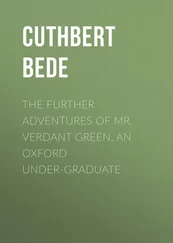"Did you find my father?"
The question hit her point-blank, after no more than a kiss, a single kiss after two months of separation. I couldn't wait any longer.
Yes, she had found him. He was lying in the graveyard of a little village in the Ardèche.
She showed me a photograph. A well-made cement tomb with "J. Charrière" on it. He had died four months before she got there. And all Rita brought me back was this picture of his grave.
My heart, which had seen Rita go off so full of hope, almost stopped at this appalling news. I felt the collapse of all those illusions I had had as a man who still sees himself as a little boy for his father. God, not only have You struck the whole of my youth but You have also refused to let me embrace my father and to hear his voice, which would have said, I am certain of it, "Come to my arms, my little Riri. Fate has been unmerciful to you but I love you still; I am proud that you have had the strength to become what you are." Over and over again Rita told me the little she had been able to find out about my father's life after I was sentenced. I said nothing; something inside me was tied into a furious knot. And then all at once, as though a sluice had burst open, the idea of revenge came over me again. "Pigs, I'll set off that trunk of dynamite at thirty-six, quai des Orfèvres, not just to kill a few but to get as many as possible-a hundred, two hundred, three hundred, a thousand! And you, Goldstein, you perjurer, believe me, you'll get what's coming to you, every last bit of it. As for you, prosecuting counsel, so eager to put me away, it won't take me long to find a way of getting hold of your tongue and tearing it out, to cause as much agony as you can suffer!
"Rita, we must part. Try to understand: they prevented me from embracing my father and having his forgiveness. I must have my revenge; they can't get away with this. I know where to find the money for the journey and to carry out my plan. All I ask is that you let me take five thousand bolIvars out of our saving for my first expenses."
An interminable silence settled; I no longer saw Rita; her face disappeared behind the unfolding vision of the plan I had worked out so often.
What did I need to put it into action? Less than two hundred thousand bolivars, in fact. I'd asked too much before. I'd have plenty to spare with these sixty thousand dollars. There were two jobs I'd left alone out of respect for this country. First, El Callao with its heap of gold guarded by ex-cons. Then right in the middle of Caracas, the cashier of a big firm. He was a pushover: he carried large sums of money without an escort. The entrance to the building was perfect; so was the fourth-floor corridor: both were badly lit. I could work alone, unarmed, with chloroform.
As for the getaway, that would have to be through British Guiana. I'd get to Georgetown with just a little gold melted down into nuggets-easy enough with a blowtorch. I'd be certain of finding a buyer for the lot. The fence and I would carry out the deal on the basis of notes cut in two; he'd keep one half and only give it to me when I delivered the goods on the British side of the Caroni, where I would have the stuff hidden. That way, there would be confidence all round.
Transfer the dough to Buenos Aires through a bank; carry a certain amount in notes; take a plane from Trinidad to Rio de Janeiro. At Rio, change passports and get into Argentina.
No problem there. I had friends in Rio, ex-cons; and it must be easy to find former Nazis with their trunks full of papers. Leave for Portugal from Buenos Aires with four sets of passports and identity papers-different nationalities but all in the same name to avoid confusion.
From Lisbon, take the road into Spain and reach Barcelona; still traveling by road, into France on a Paraguayan passport. I spoke Spanish well enough by now for an inquisitive French gendarme to take me for a South American.
In Paris I'd stay at the Georges V. Never go out at night: have dinner at the hotel and send for tea in my suite at ten. The same thing every day of the week. That's the hallmark of a serious man who leads an exactly regulated life. In a hotel such things get noticed right away.
I'd have a moustache, of course, and hair cut _en brosse_, like an officer. Only say what was strictly necessary and use a Spanish sort of French to say it. Have Spanish newspapers put in my pigeonhole at the reception desk every day.
Thousands and thousands of times I'd considered which man or men to begin with, so that the three jobs would never be connected with Papillon.
The first to get their deserts would be the pigs, with the trunk stuffed with explosives at 36, quai des Orfèvres. There would be no reason to think of me if I did it cleverly. To begin with I'd have a look at the premises and check the exact time it took to go up the stairs to the report room and then get back to the entrance. I didn't need anyone to work out the fuse for the detonator; I'd make all the necessary experiments at the FrancoVenezuelan garage.
I'd turn up in a van with MAISON SO-AND-SO: OFFICE EQUIPMENT painted on it. Dressed as a delivery man, with my little crate on my shoulder, I should get away with it easily. But when I first went over the place I'd have to find some inspector's card on a door or else manage to get hold of the name of an important character with his office on that floor. Then I could say the name to the pigs on duty at the door; or indeed I could show them the invoice, as if I didn't remember who the trunk was for. And then all aboard for the fireworks. It would take diabolical bad luck for anyone to connect the explosion-a sort of anarchist's job, after all-with Papillon.
Thus the prosecutor Pradel would remain unsuspecting. To cope with him, and to prepare the trunk, the fuse, the explosives and the bits of old iron, I'd take a villa, using my Paraguayan passport if I hadn't managed to get hold of a French identity card. I was afraid it might be too dangerous to get into contact with the underworld again. Better not risk it: I'd make out with the passport.
The villa would be near Paris, somewhere along the Seine, because I'd have to be able to get there by water and by road. I'd buy a light, fast little boat with a cabin, and it would have moorings right by the villa and on the banks of the Seine in the middle of Paris, too. For the road, I'd have a small, high-powered car. It was only when I got there, when I knew where Pradel lived and worked and where he spent his weekends and whether he took the Metro, the bus, a taxi or his own car, that I'd take the necessary steps to kidnap him and shut him up in the villa.
The main thing was to make dead sure of the times and the places he was alone. Once he was in my cellar, I had him on toast. This prosecutor who, way back in 1931, at the trial, had seemed to say to me, with his vulture look, "You won't escape from me, young cock; I'm going to make use of everything that can look bad for you, all this ugly muck in your file, so the jury will turn you out of society for good and all"-this prosecutor, who had used all his abilities and all his education to paint the vilest and most hopeless picture of a boy of twenty-four, and with such success that the twelve incompetent bastard jurymen sent me to hard labor for life-this prosecutor I'd have to torture for at least a week before he died. And at that he wouldn't have paid too dear.
The last to pay the bill would be Goldstein, the perjurer. I'd take him last, since he Was the most dangerous for me. Because once I'd killed him, they'd look back over his life, and the pigs were not always half-wits-they'd soon see the part he had played in my trial. And as they'd know right away that I was on the run, it wouldn't take them long to figure out there might be a Papillon fluttering about in the Paris air. At that point everything-hotels, streets, stations, ports and airfields-would become extremely dangerous for me. I'd have to make my getaway quickly.
Читать дальше
Конец ознакомительного отрывка
Купить книгу











